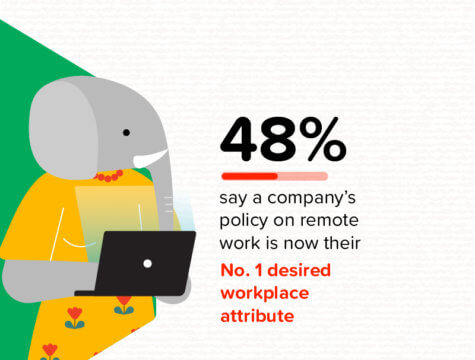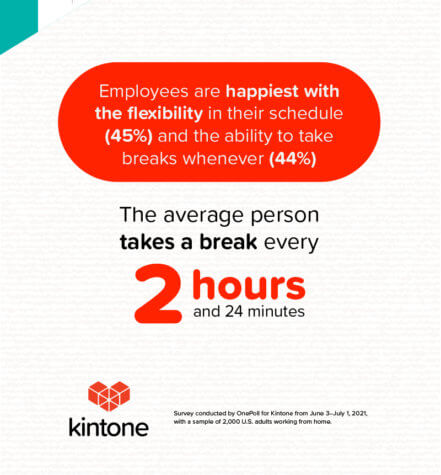
(Credit: Daria Shevtsova from Pexels)
NEW YORK — American employees say that the number one workplace feature they’ll be searching for post-COVID is the ability to continue working remotely when they please.
That’s according to a new study of 2,000 Americans who are still working from home during the pandemic. More than two in five (48%) say a company’s policy on remote work is now their number one desired workplace perk. It’s so important that nearly three in four (72%) claim they wouldn’t even consider working for a company that didn’t offer flexible work-from-home policies.
Is the office dead?

Although 36 percent think their job is more difficult when working remotely, 71 percent say they have a better work-life balance when working from home. Employees are happiest with the new flexibility in their schedules (45%) and the ability to take breaks anytime (44%), with the average person taking a break around every two and a half hours.
Over half the poll (51%) feel like their workplace contributions have been acknowledged more since they started working from home.
“People are embracing remote work more than ever before. Workplace norms have shifted and employees are expecting to have a more robust work-life balance,” says Dave Landa, CEO of Kintone, in a statement.
Working from home drawbacks
Unfortunately, working from home hasn’t been all rainbows and butterflies for employees. From not having the right office equipment (35%), to having difficulty communicating with coworkers (36%), or having too many distractions (34%), working from home isn’t a flawless system for many.

Americans weren’t shy about suggesting ways their company could help improve their work from home experience. Almost half think adjusted company policies, including working hours and expectations (46%) would make a difference in their performance. Other ways that companies can make working from home better is by reimbursing their employees for internet service or other utility bills (43%) or providing a new computer or laptop (41%).
Communication is key for half of respondents (52%) who feel like their company can benefit from communicating more directly with employees.
Almost six in 10 (57%) feel work-related communication was more productive in the office and 36 percent feel it has been a strain to effectively communicate with their leadership about career matters.
“Every major transformation like this comes with hurdles and uncertainties. In the end, the benefits of happier, more satisfied employees will justify the efforts to address these challenges head on. Employers should create policies and find solutions to meet these concerns and strengthen communications so that remote and hybrid work experiences will only improve in the post-pandemic era,” Landa adds.










